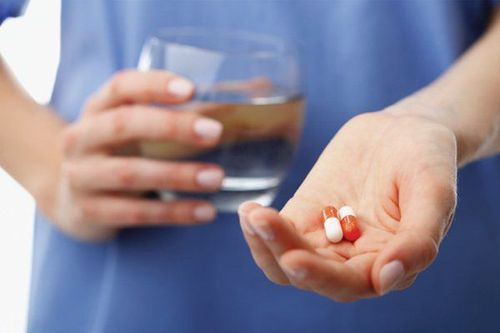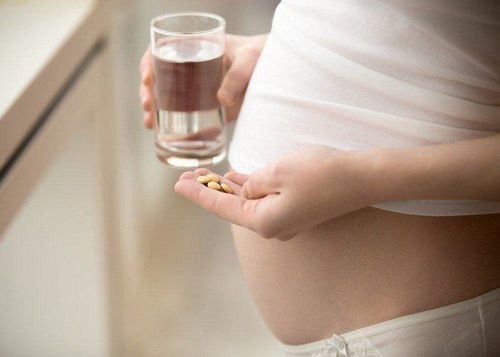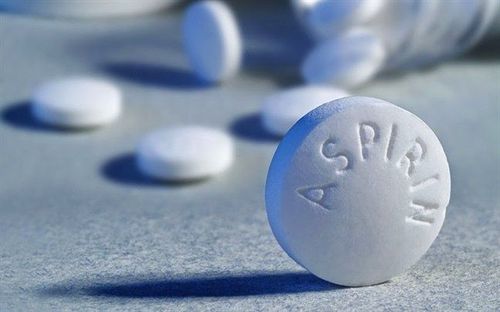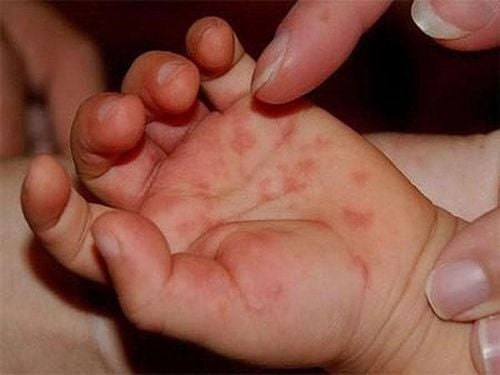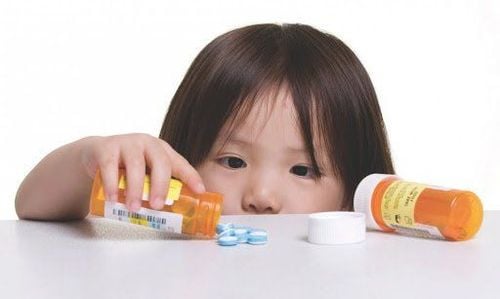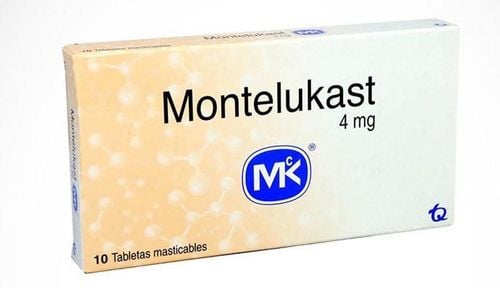This is an automatically translated article.
Unlike adults, the use of antipyretics for children needs to be very careful, especially the dose and the safe interval between uses. Depending on age and weight to choose and use effective antipyretic. The following article will help you better understand what antipyretic drugs are, how much is the appropriate dose of antipyretics for children, and how many mg should be given to a 14kg child.1. The most popular antipyretic drugs today
Fever reducer is one of the essential medicines in every family's medicine cabinet and can be used at home.
Fever reducer is an over-the-counter drug, currently the drug consists of 3 main groups:
Salicylate: aspirin, choline salicylate..., has antipyretic effect, relieves pain from mild to moderate pain such as headache, pain muscle, toothache, common cold. Aspirin is also sometimes used as a pain reliever from arthritis. The salicylate ingredient works to block certain active substances in the body that cause pain. It is recommended to consult a doctor before giving salicylate-containing medicines to children under 12 years of age. Paracetamol: is a common and common active ingredient used to relieve symptoms of fever, headache, dizziness, and flu. Nonsteroidal anti-inflammatory drugs (NSAIDs): ibuprofen, naproxen, and ketoprofen. This is a group of drugs that have a stronger antipyretic effect than paracetamol and have a long antipyretic time. But note, when using Ibuprofen, it is necessary to monitor your body condition regularly and recommend that you have a doctor's prescription, because ibuprofen fever-reducing medicine has many side effects. It should be noted that the effect of antipyretic drugs is mainly to help reduce fever quickly at the time of high body temperature. However, if the cause of the fever cannot be found, it is necessary to see a doctor for an effective diagnosis and treatment.
Although these are quite safe drugs and can be used at home, but if you don't pay attention and use them indiscriminately, they can cause unwanted effects, especially for children and the elderly. Refer to the appropriate dosage below.
2. How to choose and use the right antipyretic medicine
2.1. How to choose the right antipyretic When a child has a fever, especially a child with a history of febrile convulsions, parents need to quickly help the child reduce the fever by reasonable and safe methods. It is important to pay attention to the correct use of antipyretics.
2.2. How to use antipyretics The basic principle is that any medicine, even common antipyretics for children, must be prescribed by a doctor to be really safe for children. In cases where the child has not been taken to the doctor in time, parents can go to the pharmacy to buy fever-reducing medicine for the child to take. However, you should read the instructions carefully before using the medicine on children.
Absolutely do not arbitrarily use antipyretic drugs for children under 3 months old without consulting a doctor. The type of antipyretic drug used should be appropriate for the child's age group and "the child's ability to take medicine", this is a way for the child to receive the necessary amount of antipyretic medicine in the process of lowering the child's fever. The dose of basic antipyretic drugs should be based on the actual weight of the child to ensure the safety and effectiveness of the child's rapid fever reduction. Specifically, children take the correct dose as prescribed, which is 10 mg - 15 mg/kg/time when the fever is above 38.50C. Parents need to adhere to a safe distance between 2 times of using antipyretic drugs for children to prevent an overdose that can lead to acute poisoning which is very dangerous to life. Repeat the next dose only after 4 hours if the child still has a fever, usually 3-4 times / day, the maximum total dose should not exceed 60mg / kg / 24 hours. Antipyretic drugs used for children must have a clear expiry date. Dealing with missed doses:
Normally, paracetamol will only be used when necessary for children, so there is no specific dosing schedule. If you need to take the medicine regularly, take the missed dose as soon as you remember. However, if it is almost time for the next dose, skip the missed dose and use the next dose. Do not use a double dose to make up for a dose you have forgotten.
Treatment of overdose:
If you notice symptoms of paracetamol overdose, seek emergency medical attention. Signs of paracetamol poisoning include:
Diarrhea Anorexia Nausea, vomiting Stomach cramps and pain Increased sweating Later, more severe symptoms may appear such as upper stomach pain, dark urine color, yellowing of the skin or whites of the eyes.
3. How many mg should a 14kg child take to reduce fever?
For each age of the child, there will be an appropriate dose of antipyretic that should be used. The question is, how much is reasonable for a child weighing 14kg?
According to the regulations of pharmaceutical companies, with powdered antipyretic drugs will have the following dosage and usage:
For children weighing less than 12kg, that is, children under 1 year of age, use an 80mg antipyretic package. Mix directly with cooled boiled water according to the instructions on each package and then give it to the child to drink. For children weighing more than 12kg, use a 250mg antipyretic package. Mix directly with cooled boiled water for children to drink. For this powdered form, children will be more easily absorbed. Dosage is also moderate, no need to use high doses. Fever-reducing patches and suppositories should only be used in cases where the child has a high fever, vomiting, and is unable to take medication.
Suppositories are prepared with strengths of 80mg, 150mg and 300mg. Specific dosage is prescribed as follows:
For children from 1 to 5 months of age, weighing more than 6 kg, use 80mg tablets. For children from 6 to 12 months old, weighing up to 12kg, use 150mg suppositories. For children over 1 year of age, weighing 12 kg or more, use 250mg suppositories.
4. Some notes when using fever reducer for children
Must read the instructions for use carefully before use, must take the correct dose.
For children, it is recommended to use 3 to 4 times a day, at least 6 hours apart. Do not give children more than the prescribed dose to reduce fever, it will adversely affect the child.
Should measure the child's temperature regularly when the child has a fever and especially before and after taking antipyretic to see the effect of the medicine and the child's body response. If the child shows signs of lethargy, a persistent fever for 3 days that does not decrease and the body temperature is too high, the child should be taken to the hospital.
In case the child uses antipyretic but there are no signs of hypothermia, another dose can be given 30 minutes later. If it still doesn't work, take the child to the hospital.
It should be noted that in case of allergic manifestations, the drug must be stopped immediately. If the child has hepatitis, jaundice due to biliary obstruction, the medicine should not be used but should be under the guidance of a doctor.
Hopefully, with the above sharing, it has helped parents know how to use medicine for children to be safest and most effective. If you have any further questions, you can contact your doctor for in-depth advice.
Please dial HOTLINE for more information or register for an appointment HERE. Download MyVinmec app to make appointments faster and to manage your bookings easily.




